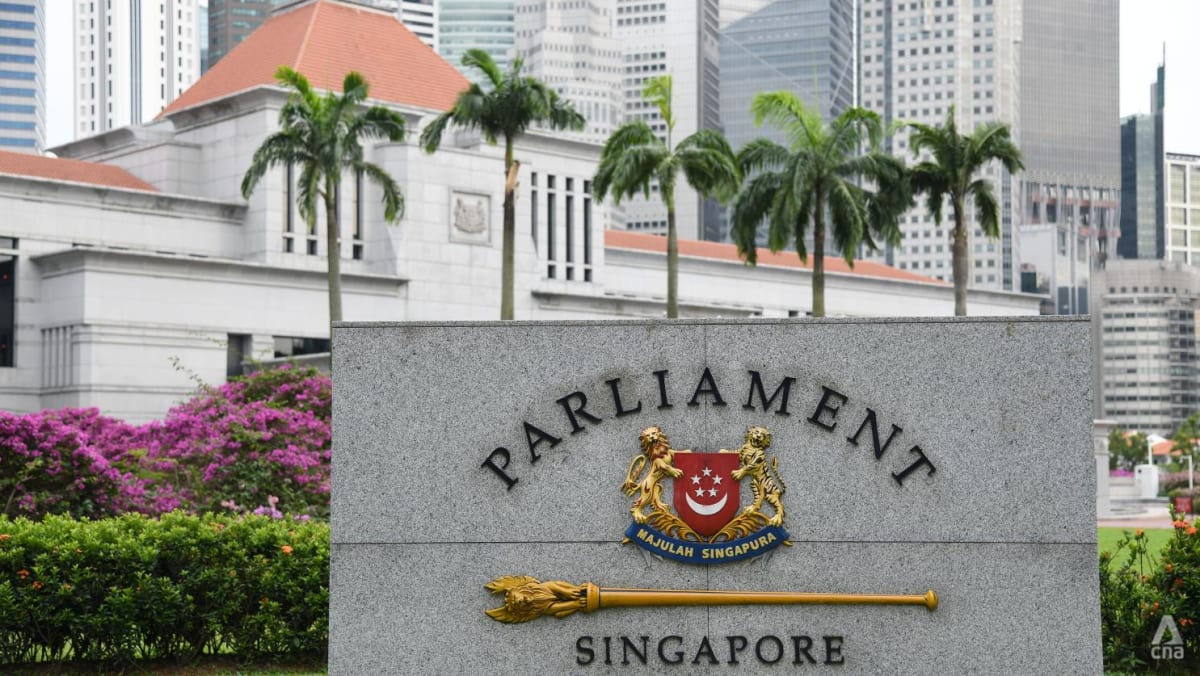SINGAPORE: New societies that would have been automatically registered could have their applications rejected if they are deemed to threaten Singapore’s security, under a new proposed Bill.
The Registrar of Societies would also be allowed to request more information from new societies applying to register through the automatic route, under draft amendments to the Societies Act tabled in parliament on Monday (Sep 18).
The proposed measures would apply to societies that are currently registered automatically as long as their application meets formal requirements, like payment of the prescribed fee.
Currently, new societies are registered through two routes – the normal route for “specified” societies listed in the Schedule of the Societies Act, and the automatic route for “non-specified” societies.
The automatic route was introduced in 2004 to facilitate the registration of non-specified societies that generally do not pose risks to national interests or security, said the Ministry of Home Affairs (MHA) in a press release.
In contrast, applications by specified societies go through a longer vetting and assessment process that may involve several rounds of clarification with the applicant.
Specified societies include political associations and societies to promote or discuss issues relating to religion, any ethnic group, language, nationality, and civil and political rights.
They also include societies formed under the instruction of a foreign government, or under the instruction of a foreign organisation whose major source of funding is outside Singapore.
Societies related to controlled drugs, gambling and paid sexual services are also considered specified societies.
Over the last five years, about 280 registration applications a year were submitted to the registrar, with roughly equal numbers being submitted through the normal and automatic routes. An average of 10 applications were rejected each year.
CHECKS PROPOSED IN AUTOMATIC ROUTE
Explaining the proposed changes to the automatic registration route, MHA said there could be non-specified societies that pose a threat and should not be registered.
“Suppose a group of individuals, with antecedents of concern, wished to set up a society to advocate for the interest of a racial group. However, they know that if they were to set up a society promoting the interests of a particular race, they would have to do so via the normal route,” said the ministry.
Under the normal route, the registrar would be able to scrutinise the group’s application, such as asking questions to clarify the objectives of the society and its leadership composition.
“To avoid being questioned, this group tries to set up a society with an innocuous aim, such as a history interest group. Such an application could then be submitted via the automatic route, which currently, will be approved immediately,” said MHA.
“The proposed amendments in the Bill would allow the registrar to make inquiries on all applications submitted, including those via the automatic route if the registrar has grounds to be concerned.”
If passed, the Bill would mean the registrar can reject an application if the non-specified society is likely to be used for unlawful purposes or purposes that would compromise public peace, welfare and order in Singapore, or if it would be contrary to national interests or security.
Applicants rejected from the automatic route would be able to appeal to the Minister for Home Affairs.
MHA said there could also be instances where the registrar may need more information to ascertain if a society really does qualify through the automatic route. The proposed Bill would allow the registrar to make such inquiries, which is currently not allowed.
If the Bill is passed, the changes are projected to take effect in the first quarter of 2024.
Related:
Singapore passes law requiring social media sites to block harmful content 'within hours'
Parliament passes law targeting online content used for scams, malicious cyber activity
OTHER PROPOSED CHANGES
The draft law also proposes higher penalties for some offences under the Societies Act.
For example, currently, an officer of a registered society who supplies the registrar with information that is false, incorrect or incomplete can be fined up to S$5,000 (US$3,700).
The proposed amendments would impose a higher maximum fine of S$10,000 and up to one year in jail for intentionally altering, suppressing or destroying any information, or providing statements that are false or misleading to the registrar.
MHA said the penalties were reviewed to ensure that they continue to have a deterrent effect, and to bring them in line with other newer and comparable legislation.
The draft law also clarifies certain powers of the registrar. If passed, it would make it clear that the registrar can ask a specified society to amend its rules as a condition to be registered and reject the application if it does not comply.
It would also make clear the grounds on which the registrar can reject a society’s application to change its name and rules. These include the amended name being likely to mislead the public or being “undesirable or offensive”, or the amended rules being at odds with national interests and security, said MHA.
Currently, the Minister for Home Affairs can declare a person unfit to be a committee member of a society due to a past criminal conviction. Under the proposed law, the registrar would be empowered to do so, and the minister would become the authority to whom an unfit person can make an appeal.




